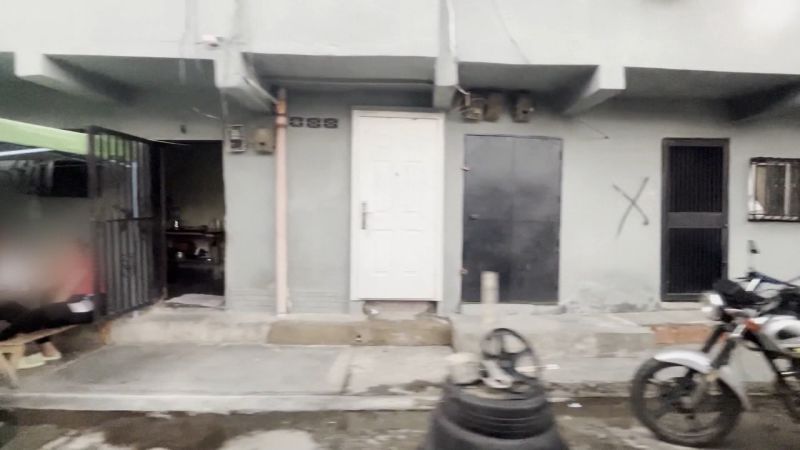
A black X is appearing on the doors of Maduro opponents in Venezuela
In a poor Caracas neighborhood, the letter “X” is appearing on people’s homes – crude chest-high slashes of paint that residents say amount to a threat.
“There are some fifty homes in my street, and thirty-two have been marked,” said one resident, who asked to use the alias “Pablo”, due to fear of retaliation for speaking out.
The Xs appeared in Pablo’s neighborhood days after Venezuela’s President Nicolás Maduro claimed victory at the polls on July 28 – a result disputed by the opposition and questioned by foreign observers.
Members of a Venezuelan paramilitary unit took photos of his neighbors as they stood outside their homes and called for Maduro to step down by banging pots. The next morning, “we woke up and all the houses were marked with a cross,” Pablo said.
“The following days, they would ride around the street saying this mark is for cowards and that they would come back with guns if anyone protested,” he said.
Paramilitary groups have historically been used by the Maduro regime to intimidate or attack opposition supporters. In many of Caracas’ poorest neighborhoods, they are the only law.
Another resident of the same neighborhood said her home was not grafittied, but that she is now too intimidated to join planned anti-government protests on Saturday. She is fearful of a crackdown by the government, which has already detained hundreds of opposition supporters for protesting against Maduro or casting doubt about his disputed victory.
She says that paramilitary groups have installed surveillance cameras in her area, and she does not know who to trust. The Venezuelan government recently repurposed an app originally intended to report public administration malfunctions to allow anonymous charges against opposition supporters.
“This is the app to snitch on the fascists,” Maduro himself told a recent rally, presenting the new service. It has since been blocked on Apple’s App store but is still available on Google Play.
She believes that about 80% of the area she lives in would be in favor of Venezuela’s political opposition – but are too intimidated to make their voices heard.
“A couple days after the election, two young protesters were taken away, there’s no trust among neigbhbors also because of the app,” Valentina said.
A pattern of repression
Venezuelans have felt this fear before. In 2019, when opposition leader Juan Guaido declared himself to be the interim president of Venezuela, with widespread popular support, motorcycle riding colectivo members terrorized anti-government rallies with gunfire and prevented opposition lawmakers and journalists from entering the National Assembly.
That pattern of repression appears to be ramping up today.
Pablo accuses colectivo members of making threats, such as being taken to prison, blacklisting for vital government benefits for cheap gasoline and food handouts. There have also been threats of overt violence in the past few days, though he maintains he will keep protesting.
“Young people are [taken] out of their houses, houses are marked with a cross at their doors. Journalists have been detained, four of them have been accused of terrorism. This is happening as we speak,” she said.
Since the contested election, Maduro has been at the forefront of the government crackdown, ordering the opening of two new prisons to accommodate detained protesters and openly calling for everyone in the streets to be imprisoned.
Maduro has also endorsed what is informally referred to as “Operation Knock-Knock,” that has seen security services knocking at opposition members’ doors.
“Knock Knock! Don’t be a crybaby… You’re going to Tocorón (a jail)” Maduro shouted at a rally last week.
Even after Venezuela’s electoral and judicial authorities announced the victory of Maduro, they have not shown detailed results and electoral records to support it, prompting anger and concern across the country and abroad.
Meanwhile, the team of opposition candidate Edmundo Gonzalez Urrutia has released independently collected polling station data that, although partial, appears to suggest that Maduro lost.
Numerous countries say they will not recognize the official election result until the vote tallies are published in full.
In a report shared Tuesday, a panel of experts from the United Nations said the presidential election lacked “basic transparency and integrity.” They also strongly criticized the National Electoral Council (CNE) for announcing the winner without revealing the tabulated results from each of the country’s polling stations, saying it had “no precedent in contemporary democratic elections.”
“The note … from the UN is giving us a lot of hope. The world must know that we have a neo-Nazi for president,” Pablo said.
